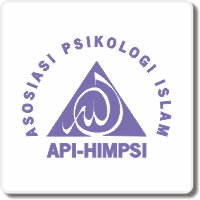Kontribusi Psikoterapi Islam bagi Kesehatan Mental
DOI:
https://doi.org/10.32923/psc.v3i2.2093Keywords:
Islamic Psychotherapy, Mental Health, Al-Qur’an and Al-HadithAbstract
The concept of health based on religion has a long-term concept that is not only oriented, but can be used over time. Religion can have a significant impact on human life, including on health. One of the solutions to be able to overcome mental health problems is to practice religious values in everyday life. The purpose of this study is to explain further about Islamic Psychotherapy in improving mental health by looking at the nature of mental health based on or referring to the Qur'an and Al-Hadith. The methods of this research were using literature review on various journal sources and analytical readings that collected through Islamic Psychotherapy, Mental Health, Al-Qur'an and Al-Hadith keyword. The results of this study indicated that Islamic psychotherapy is the most effective effort to cure and prevent mental illness. Islamic psychotherapy believed that faith and closeness to the Creator will be a very significant force for the good of one's mental problems. Islamic psychotherapy was not only treating people with physical and spiritual illnesses, but also improving one's mental quality to achieve a happy life. Thus, in result the mental health would be achieving harmony, tranquility, well-being, and peace of mind.
Downloads
Published
Issue
Section
License
Copyright Notice
The Psychosophia: Journal of Psychology, Religion, and Humanity is under the Creative Commons Attribution 4.0 International (CC-BY 4.0) License, according to which:
1) Authors retain copyright and grant the journal the right to first publication, with the work simultaneously licensed under the Creative Commons Attribution (CC-BY 4.0) that allows the sharing of articles published with the acknowledgment of authorship and the initial publication in this journal.
2) The authors are authorized to make additional contracts separately for distribution of the version of the work published in this journal (for example, publication in an institutional repository or as a chapter of the book), as long as there is recognition of authorship and initial publication in this journal.
3) Authors are authorized and encouraged to publish and distribute their work online (for example, in institutional repositories or on their personal pages) at any time before or during the editorial process, as it increases the impact and reference of the published work.






